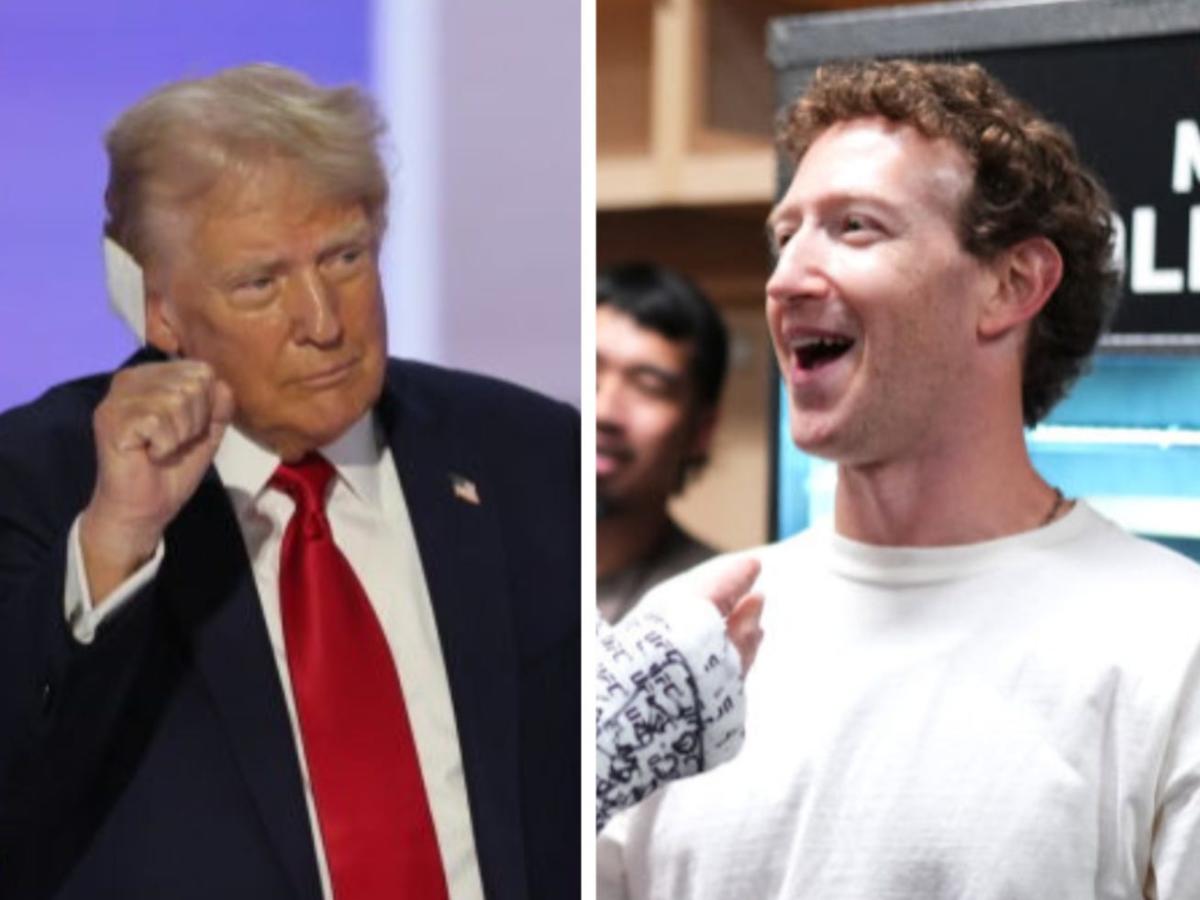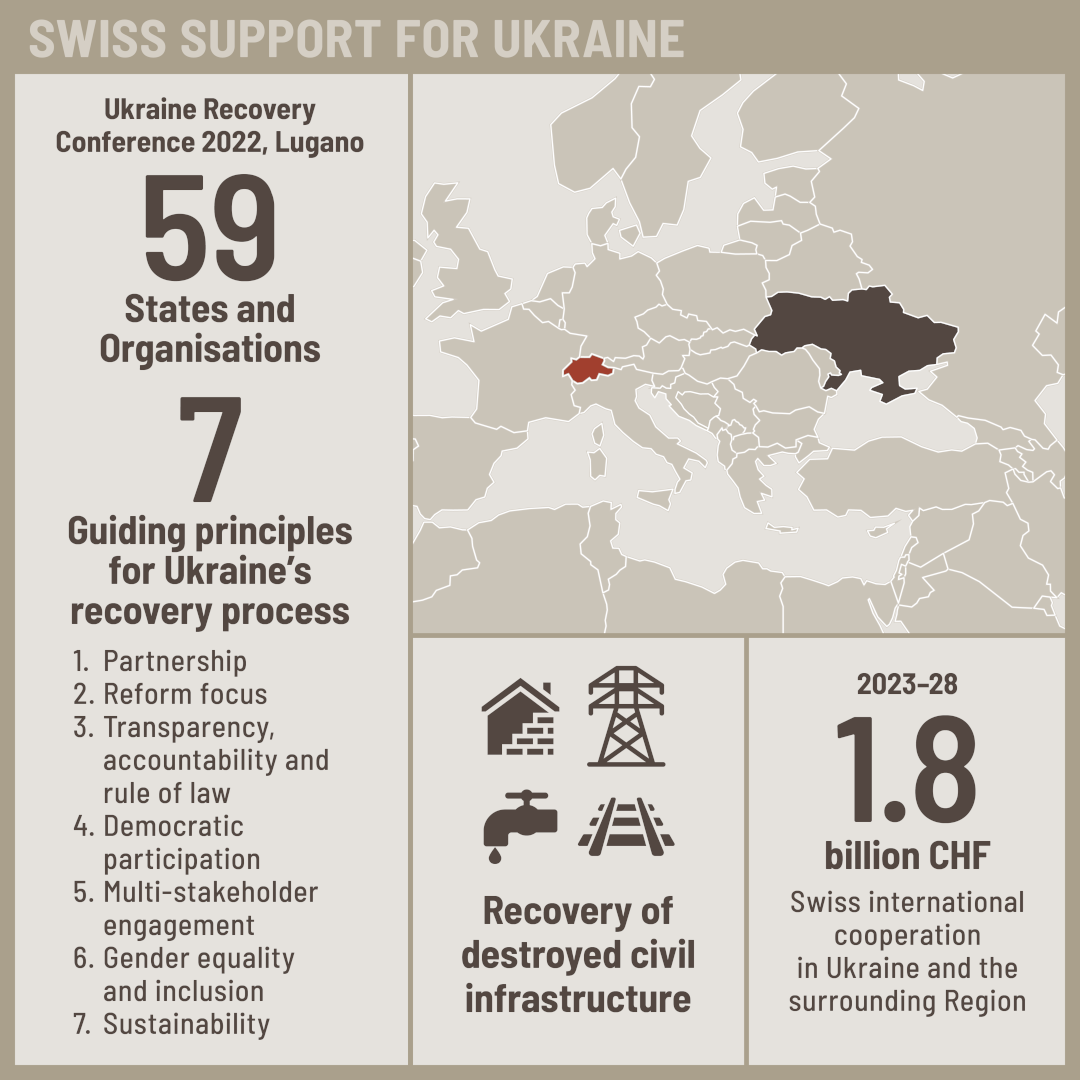Meta Under Trump: Zuckerberg's Challenges And Opportunities

Table of Contents
The Rise of Misinformation and Political Polarization
The Trump era witnessed a surge in misinformation and political polarization, significantly impacting Meta's platforms. This section analyzes the spread of fake news and the role of Meta's algorithms in exacerbating political divisions.
The Spread of Fake News and its Impact on Elections
Meta's platforms, particularly Facebook, became battlegrounds for disinformation during the 2016 and 2020 US Presidential elections. Foreign interference, the use of bots and trolls, and sophisticated propaganda campaigns significantly influenced public opinion.
- Foreign Interference: Evidence suggests coordinated efforts by foreign actors to manipulate public sentiment using fake accounts and targeted advertising. Russia's interference in the 2016 election is a prime example, highlighting the vulnerability of social media platforms to malicious actors.
- Bot and Troll Networks: Automated accounts and human-operated troll farms spread disinformation at scale, amplifying divisive narratives and undermining trust in legitimate news sources.
- Content Moderation Challenges: Identifying and removing false or misleading information proved a monumental task for Meta, prompting criticism for its slow response and inconsistent enforcement of its community standards.
- Examples: The spread of false claims about Hillary Clinton's health in 2016 and the promotion of QAnon conspiracy theories during the Trump presidency are stark examples of the impact of misinformation on Meta's platforms. These campaigns directly impacted the political discourse and voter perceptions.
Increased Political Polarization and Echo Chambers
Meta's algorithms, designed to maximize user engagement, inadvertently contributed to the creation of filter bubbles and echo chambers. Users were primarily exposed to information confirming their existing beliefs, reinforcing biases and exacerbating political divisions.
- Algorithmic Bias: The algorithms prioritized sensational and emotionally charged content, regardless of its veracity, leading to the amplification of extreme viewpoints.
- Impact on Social Cohesion: The increased polarization fostered by Meta's platforms contributed to a decline in civil discourse and increased social fragmentation.
- Censorship vs. Free Speech: The debate over censorship versus free speech raged throughout this period, with Meta facing criticism for both silencing dissenting voices and failing to adequately curb the spread of harmful content.
- Examples: Studies consistently showed increased political polarization on Facebook during the Trump era, directly correlating with algorithmic exposure to like-minded content. This highlights the unintended consequences of engagement-focused algorithms.
Regulatory Scrutiny and Antitrust Concerns
The Trump administration's focus on technology regulation led to increased scrutiny of Meta's practices, resulting in numerous investigations and legal battles. This section details the regulatory challenges and antitrust concerns faced by Meta during this period.
Investigations and Fines Related to Data Privacy and Antitrust
Meta faced multiple investigations and lawsuits regarding data privacy and antitrust violations throughout the Trump era.
- Cambridge Analytica Scandal: The scandal, involving the unauthorized harvesting of user data, severely damaged Meta's reputation and triggered widespread calls for greater regulation.
- Antitrust Concerns: Meta faced accusations of monopolistic practices, particularly concerning its dominance in the social media market. Concerns were raised about its acquisition of Instagram and WhatsApp.
- Fines and Settlements: Meta faced substantial fines and settlements related to data privacy violations and antitrust allegations.
- Examples: The FTC's investigation into Meta's data privacy practices and various state-level antitrust lawsuits illustrate the extent of the regulatory scrutiny faced by the company.
Changing Regulatory Landscape and the Future of Social Media Regulation
The Trump administration, despite its generally pro-business stance, initiated actions that significantly altered the regulatory landscape for social media companies.
- Increased Government Oversight: The investigations and lawsuits laid the groundwork for increased government oversight and regulation of social media platforms.
- Section 230 Debates: The ongoing debate over Section 230 of the Communications Decency Act, which shields online platforms from liability for user-generated content, gained significant momentum during this period.
- Data Privacy Regulations: The push for stronger data privacy regulations, spurred in part by the Cambridge Analytica scandal, continued to gain traction.
- Examples: While no major sweeping legislation was passed during the Trump era, the groundwork for future regulations was laid through investigations and executive orders.
Opportunities for Growth and Innovation
Despite the challenges, the Trump era also presented opportunities for Meta's growth and innovation. This section examines how Meta leveraged political discourse and invested in new technologies.
Leveraging Political Discourse for Engagement
The heightened political engagement on Meta's platforms translated into increased advertising revenue.
- Political Advertising: Political campaigns heavily invested in advertising on Facebook and Instagram, driving significant revenue growth for Meta.
- Targeted Advertising: Meta's sophisticated targeting capabilities allowed political campaigns to reach specific demographics with tailored messages.
- Ethical Considerations: The ethical implications of profiting from political polarization and the spread of misinformation raised considerable concern.
- Examples: Statistics clearly showed a surge in political advertising revenue on Meta's platforms during the Trump years.
Investment in New Technologies and Diversification
Meta used this period to invest in new technologies and diversify beyond its core social media business.
- VR/AR Investments (Oculus): Meta's acquisition and development of Oculus VR technology represented a significant diversification effort.
- AI Development: Meta continued to invest heavily in artificial intelligence, aiming to improve content moderation and personalize user experiences.
- Mitigating Regulatory Risks: Diversification into new technologies offered a way to mitigate risks associated with regulatory scrutiny of its core social media business.
- Examples: The launch of new VR headsets and advancements in AI-powered content moderation tools illustrate Meta's efforts at diversification and technological innovation.
Conclusion
Meta's experience under the Trump presidency was a complex interplay of challenges and opportunities. The intense scrutiny over misinformation, data privacy, and antitrust concerns forced Meta to adapt and innovate. While the spread of misinformation and political polarization posed significant threats, the increased political engagement also presented opportunities for growth. Ultimately, the Trump era shaped Meta's trajectory, pushing the company to grapple with its social responsibility while pursuing technological innovation. Understanding the "Meta Under Trump" experience provides crucial insights into the future of social media regulation, the balance between free speech and responsible content moderation, and the ongoing evolution of social media giants. To delve deeper into the intricacies of this pivotal period, further research into the "Meta Under Trump" narrative is highly recommended.

Featured Posts
-
 Sonys Play Station Beta Program How To Participate And Provide Feedback
May 02, 2025
Sonys Play Station Beta Program How To Participate And Provide Feedback
May 02, 2025 -
 Aktuelle Lotto 6aus49 Gewinnzahlen Mittwoch 9 April 2025
May 02, 2025
Aktuelle Lotto 6aus49 Gewinnzahlen Mittwoch 9 April 2025
May 02, 2025 -
 Swiss President Reasserts Support For Ukraine
May 02, 2025
Swiss President Reasserts Support For Ukraine
May 02, 2025 -
 Astedada Lblay Styshn 6 Dlyl Shaml Llmyzat Walthsynat
May 02, 2025
Astedada Lblay Styshn 6 Dlyl Shaml Llmyzat Walthsynat
May 02, 2025 -
 Michael Sheen Exes Net Worth And Hollywood Exit
May 02, 2025
Michael Sheen Exes Net Worth And Hollywood Exit
May 02, 2025
